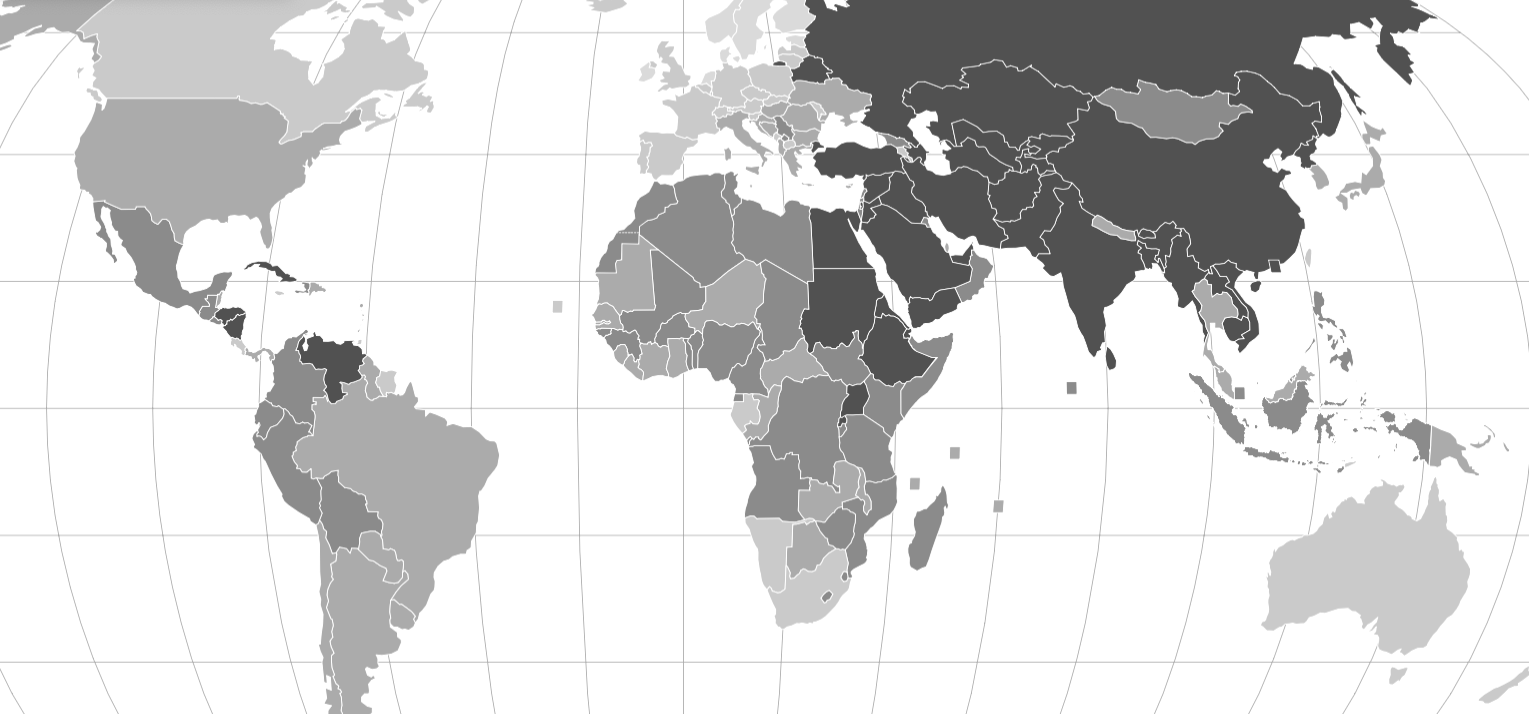Content:

RSF World Press Freedom Index 2025
Reporters Without Borders
05/02/2025
Although physical attacks against journalists are the most visible violations of press freedom, economic pressure is also a major, more insidious problem. The economic indicator on the RSF World Press Freedom Index now stands at an unprecedented, critical low as its decline continued in 2025. As a result, the global state of press freedom is now classified as a “difficult situation” for the first time in the history of the Index.
At a time when press freedom is experiencing a worrying decline in many parts of the world, a major — yet often underestimated — factor is seriously weakening the media: economic pressure. Much of this is due to ownership concentration, pressure from advertisers and financial backers, and public aid that is restricted, absent or allocated in an opaque manner. The data measured by the RSF Index’s economic indicator clearly shows that today’s news media are caught between preserving their editorial independence and ensuring their economic survival.
“Guaranteeing freedom, independence and plurality in today’s media landscape requires stable and transparent financial conditions. Without economic independence, there can be no free press. When news media are financially strained, they are drawn into a race to attract audiences at the expense of quality reporting, and can fall prey to the oligarchs and public authorities who seek to exploit them. When journalists are impoverished, they no longer have the means to resist the enemies of the press — those who champion disinformation and propaganda. The media economy must urgently be restored to a state that is conducive to journalism and ensures the production of reliable information, which is inherently costly. Solutions exist and must be deployed on a large scale. The media’s financial independence is a necessary condition for ensuring free, trustworthy information that serves the public interest.”
The ongoing wave of media shutdowns
- According to data collected by RSF for the 2025 World Press Freedom Index, in 160 out of the 180 countries assessed, media outlets achieve financial stability “with difficulty” — or “not at all.”
- Worse, news outlets are shutting down due to economic hardship in nearly a third of countries globally. This is the case in the United States(57th, down 2 places) Tunisia (129th, down 11 places) and Argentina(87th, down 21 places).
- The situation in Palestine (163rd) is disastrous. In Gaza, the Israeli army has destroyed newsrooms, killed nearly 200 journalists and imposed a total blockade on the strip for over 18 months. In Haiti (112th, down 18 places), the lack of political stability has also plunged the media economy into chaos.
- Even relatively well-ranked countries such as South Africa (27th) and New Zealand (16th) are not immune to such challenges.
- Thirty-four countries stand out for the mass closures of their media outlets, which has led to the exile of journalists in recent years. This is especially true in Nicaragua (172nd, down 9 places), Belarus(166th), Iran (176th), Myanmar (169th), Sudan (156th), Azerbaijan(167th) and Afghanistan (175th), where economic difficulties compound the effects of political pressure.
The United States: leader of the economic depression
In the United States (57th, down 2 places), where the economic indicator has dropped by more than 14 points in two years, vast regions are turning into news deserts. Local journalism is bearing the brunt of the economic downturn: over 60 per cent of journalists and media experts surveyed by RSFin Arizona, Florida, Nevada and Pennsylvania agree that it is “difficult to earn a living wage as a journalist,” and 75 per cent believe that “the average media outlet struggles for economic viability.” The country’s 28-place drop in the social indicator reveals that the press operates in an increasingly hostile environment.
President Donald Trump’s second term has already intensified this trend as false economic pretexts are used to bring the press into line. This led to the abrupt end to funding for the US Agency for Global Media (USAGM), which affected several newsrooms — including Voice of America and Radio Free Europe/Radio Liberty — and, as a result, over 400 million citizens worldwide were suddenly deprived of access to reliable information. Similarly, the freeze on funding for the US Agency for International Development (USAID) halted US international aid, throwing hundreds of news outlets into a critical state of economic instability and forcing some to shut down — particularly in Ukraine(62nd).
Media concentration and the dominance of online platforms
These serious funding cuts are an additional blow to a media economy already weakened by the dominance that tech giants such as Google, Apple, Facebook, Amazon and Microsoft have over the dissemination of information. These largely unregulated platforms are absorbing an ever-growing share of advertising revenues that would usually support journalism. Total spending on advertising through social media reached 247.3 billion USD in 2024, a 14 per cent increase compared to 2023. These online platforms further hamper the information space by contributing to the spread of manipulated and misleading content, amplifying disinformation.
In addition to the loss of advertising revenue, which has severely disrupted and constrained the media economy, media ownership concentration is another key factor in the deterioration of the Index’s economic indicator and poses a serious threat to media plurality. Data from the Index shows that media ownership is highly concentrated in 46 countries and, in some cases, entirely controlled by the state.